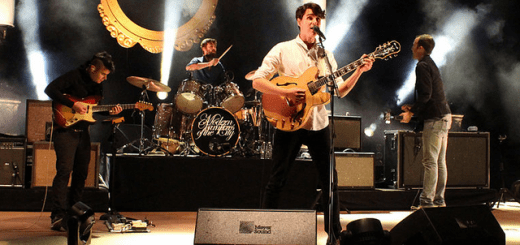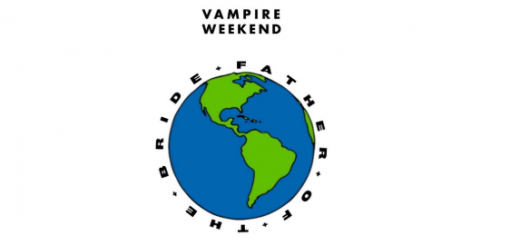The Kids Don’t Stand a Chance by Vampire Weekend Lyrics Meaning – A Dissection of Societal Illusions
Lyrics
All the way from France
With shiny, shiny cufflinks
A shirtsleeve to enhance
The pin-striped men of morning
Are coming for to dance
With pure Egyptian cotton
The kids don’t stand a chance
You criticize the practice
By murdering their plants
Ignoring all the history
Denying them romance
The pin-striped men of morning
Are coming for to dance
Forty-million dollars
The kids don’t stand a chance
I didn’t like the business
But that was at first glance
Your pillow feels so soft now
But still you must advance
The pin-striped men of morning
The partners in the dance
The paper’s shot to pieces
The kids don’t stand a chance
When Vampire Weekend emerged on the scene with their erudite lyrics and baroque pop tunes, they instantly carved a niche for themselves in the halls of music that resonated with both youthful exuberance and delicate social critique. ‘The Kids Don’t Stand a Chance,’ a track from their debut self-titled album, encapsulates this hybrid perfectly, serving as an anthem that carries beneath its seemingly simple surface a sea of poignant observations on societal structures and generational divides.
Peeling back the layers of this enigmatic piece, we find a narrative simmering with criticism and weighted with irony. It is a modern fable that casts a skeptical eye on the establishment and offers a lament for the proverbial ‘kids’ who find the deck stacked against them. But within the smartly clothed allegories and affluent vocabularies, what is frontman Ezra Koenig actually conveying? And are these ‘kids’ merely a representation of youth, or do they symbolize something much more expansive?
The Metaphor of the Pin-Striped Men
The song begins with a confluence of imagery associated with power and affluence: ‘pin-striped men’, ‘shiny cufflinks’, and ‘pure Egyptian cotton’. These are not just sartorial choices but symbols of wealth, authority, and, by extension, the old guard. They dance to the sequence of tradition and privilege, and in their choreographed steps, we can trace the outlines of the societal elite. It is a criticism of the gatekeepers of power who, clad in the trappings of their status, dance a dance that is oblivious to the realities of the less fortunate – namely, the kids.
Vampire Weekend, known for their Ivy League roots, are no strangers to such institutions of power and privilege, which gives the song an autobiographical touch as well. There is a revolt here against the very world they are a part of, a jab at the exclusivity that pervades certain sectors of society where admission is often heritage over merit.
Dancing with History and Denying Romance
The song is also a requiem for the past, mourning the obliteration of history and the denial of ‘romance’, a word that could hint at the ideas of idealism and a more profound connection to one’s environment. ‘You criticize the practice, By murdering their plants, Ignoring all the history, Denying them romance,’ sings Koenig. The song charges the ‘pin-striped’ establishment with the cultural and perhaps environmental genocide – reducing practices that shaped past identities to obsolete notions, unworthy in the eyes of the ones who wield power.
This reference to ‘murdering their plants’ could be seen as a metaphor for the wider destruction – be it the environment, the lower socio-economic classes, or those holding onto antiquated but defining practices. In the march of progress as defined by the powerful, many are left behind.
The Price of a Dance – $40 Million Secrets
Vampire Weekend doesn’t pull their punches when it comes to laying bare the mechanics of the power game. ‘Forty-million dollars, The kids don’t stand a chance,’ is a straightforward quantification of the disparity between the affluent and the youth. There is an insinuation here of an entry fee to the halls of influence so prohibitively expensive that it bars the next generation from competition.
One could argue the song suggests you need to amass a fortune to have a say in the shaping of the world, reinforcing the notion that influence is reserved for the wealthy. This becomes the sum required to join in the ‘dance’ of the pin-striped men, out of reach for ‘the kids’ attempting to break into the concentric circles of influence.
The Allusion to Comfort and Complicity
As the song nears its conclusion, the lyrics turn personal. ‘I didn’t like the business, But that was at first glance, Your pillow feels so soft now, But still, you must advance,’ reflects an internal struggle with comfort and conscience. There’s a bitter acknowledgment of the fact that the same systems that one may criticize can make life comfortable, lulling them into complacency.
It’s a commentary on the seduction of ease and luxury; the ‘soft pillow’ is a metaphor for the comfort provided by the existing hierarchy when one conforms. Even so, within that comfort, there is a drive to push forward, challenging the norms in small but meaningful ways.
Memorable Lines with Haunting Echoes
‘The paper’s shot to pieces, The kids don’t stand a chance,’ these lyrics serve as a powerful conclusion, echoing the notion that opportunities have been shredded before they could be grasped. The ‘paper’ here might symbolize contracts, money, or the written code – denoting that, whatever the medium, the deal has been destroyed by the status quo’s self-interest.
The repetition of the line ‘The kids don’t stand a chance’ becomes a mantra for the powerless. It’s catchy, yes, but it’s also a haunting reminder of the barriers to change and progress that await those who are not armed with the resources or the lineage to claim their stance.








